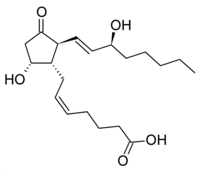 Saw this article in Life Extension magazine about broccoli:
Saw this article in Life Extension magazine about broccoli:An article published online on August 25, 2010 in the journal Gut reveals that fibers found in broccoli and plantain block a stage in the development of the Crohn's disease, an inflammatory bowel disease. The stage involves a process known as translocation, which is the invasion of microfold cells (M-cells) lining the colon by bacteria, particularly E. Coli, which tend to adhere to one another.
Crohn’s disease is uncommon in countries whose citizens regularly consume fibrous fruits and vegetables, while the incidence of the disease has increased in Japan with the rise of Westernized dietary habits. Additionally, some enteral feeds have been shown to result in clinical remission. “It is therefore a plausible hypothesis that dietary factors may have either harmful or protective roles in Crohn’s pathogenesis as a consequence of their effects on the interaction between the host epithelia and intestinal microbiota,” the authors write.
Dr Barry J. Campbell of the University of Liverpool and his associates tested the effects of soluble fiber from leeks, apples, broccoli and plantain in cultured human M-cells. Concentrations of 5 and 50 milligrams per milliliter plantain fiber, and broccoli fiber concentration of greater than 0.5 milligrams per milliliter helped inhibit E. Coli translocation. While apple and leek failed to show an inhibitory effect, translocation of E. Coli was enhanced by the fat emulsifier polysorbate 80, which is included in some enteral feed solutions administered to Crohn’s disease patients and is a common dietary additive. The results were confirmed in epithelial tissue samples derived from humans who underwent surgery for colon cancer or colonoscopy.
“These studies show that different dietary components may have powerful and contrasting effects on bacterial translocation across intestinal M-cells,” the authors conclude. “These effects may be relevant to the role of environmental factors in the pathogenesis of Crohn’s disease and suggest possible novel therapeutic approaches.”

 Saw an
Saw an  The list of health issues that are being categorized as autoimmune diseases are just stacking up! Saw an
The list of health issues that are being categorized as autoimmune diseases are just stacking up! Saw an  Saw an interesting
Saw an interesting  Saw a really interesting
Saw a really interesting 
 I've thought for a while that TNF blockers and other immunosuppressive drugs may actually be counterproductive in the long-run in treating Crohn's Disease and IBD. The point of TNF-alpha in the immune system is to promote the fight against tumors (TNF = tumor necrosis factor). What happens if you suppress that immune response? Your body may be missing tumors that it should be fighting. A recent
I've thought for a while that TNF blockers and other immunosuppressive drugs may actually be counterproductive in the long-run in treating Crohn's Disease and IBD. The point of TNF-alpha in the immune system is to promote the fight against tumors (TNF = tumor necrosis factor). What happens if you suppress that immune response? Your body may be missing tumors that it should be fighting. A recent 

 Saw an
Saw an 

 A
A  Thought
Thought  Saw an
Saw an  A
A 
 Saw an
Saw an  Saw results of two different studies.
Saw results of two different studies.  Saw this
Saw this